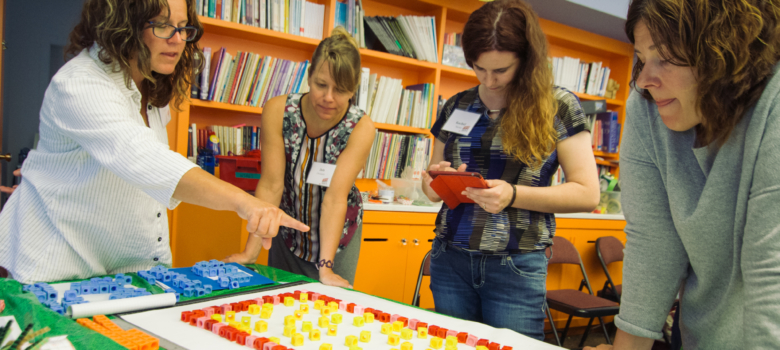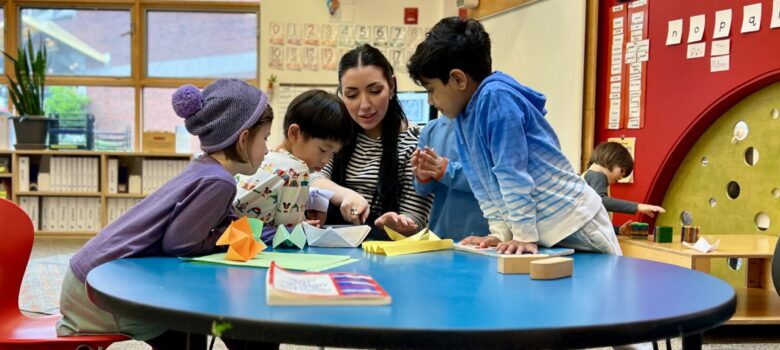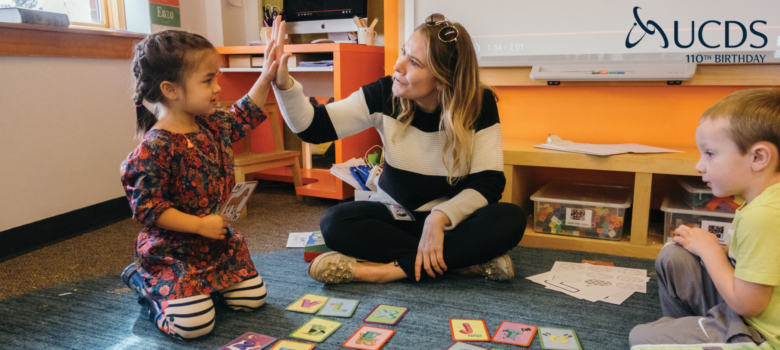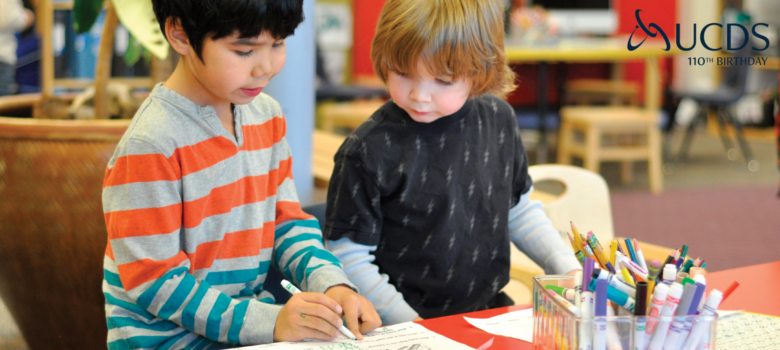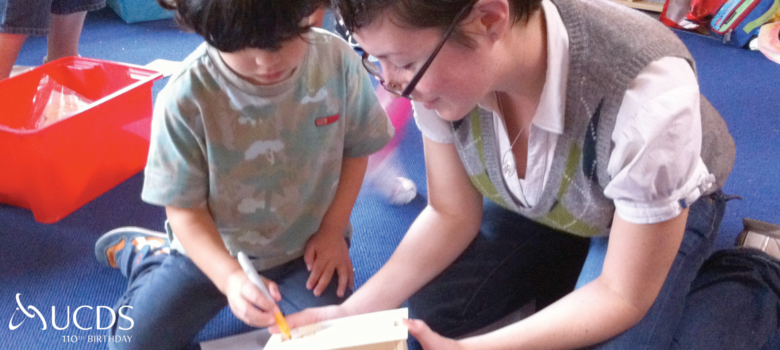By Abby Sandberg PhD, Learning Specialist and Early Elementary Division Head
The National Council of Teachers of Mathematics posted a recent blog series about the value of getting students to talk about their mathematical thinking. The author, Jon Orr, emphasizes that students need to share their thinking out loud, engage in healthy disagreement, and verbally justify their thinking to peers. He advocates for math experiences that create moments of outloud thinking, controversy, and wonder. Through this process, students more deeply understand math concepts and develop a passion around mathematics.
At UCDS, this idea closely aligns with our philosophy of teaching mathematics, which is showcased in our Math Vitamin process. We believe math should be interactive, process-driven, and sometimes…a bit chaotic! We want students to actively engage with math problem solving, not simply respond to algorithms. During Math Vitamin, talking about your problem-solving process is a requirement. Each student needs to articulate their understanding to a teacher, who will assess their understanding and stretch them further. There is special value gained, however, when you are tasked to explain your thinking to a peer. This creates many opportunities to rephrase your thinking in a different, and perhaps more clear, way. Peers are full of questions and will often have their own way of solving a problem that might contradict your own. Peers challenge each other to justify their thinking and provide evidence for their answers. When students get to talking, they also discover many ways to approach a problem, allowing them to see conundrums from a variety of perspectives.
Another beneficial aspect of this math approach is that it can be used with mathematicians at any learning level. More experienced mathematicians can debate how they solved complex algebraic equations, while beginning mathematicians can discuss how they arrived at a total sum. “I counted by tens!” “I see four groups of five!” An added benefit of implementing this philosophy early is that it sets a foundation with how young children will approach mathematics in years to come. Students quickly learn that math can be playful and interactive, providing a platform for flexible thinking and mathematical discoveries.

